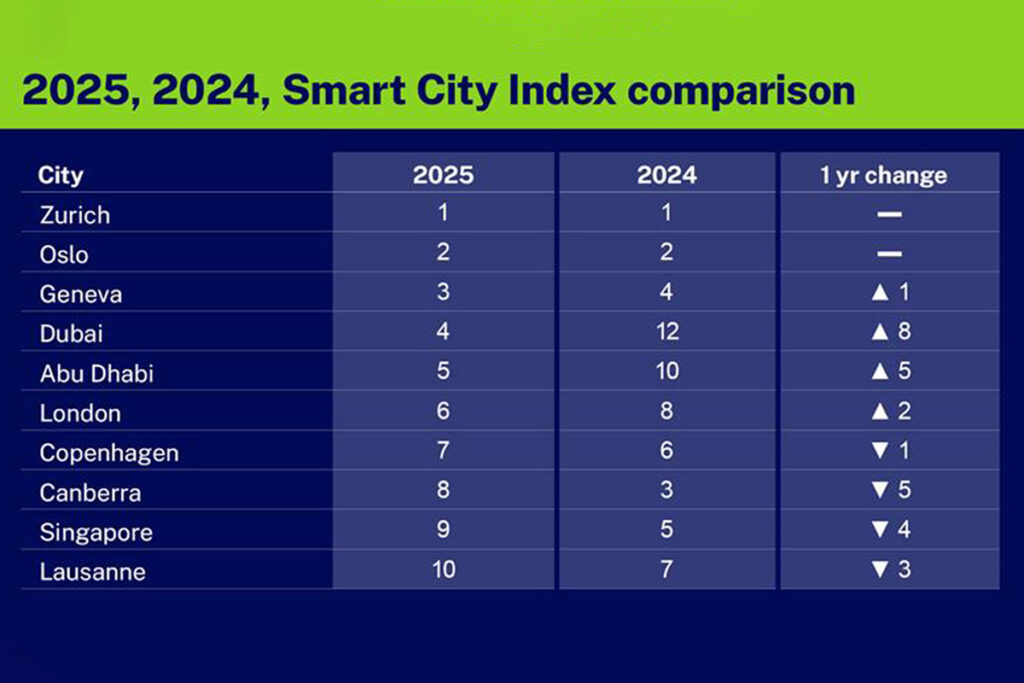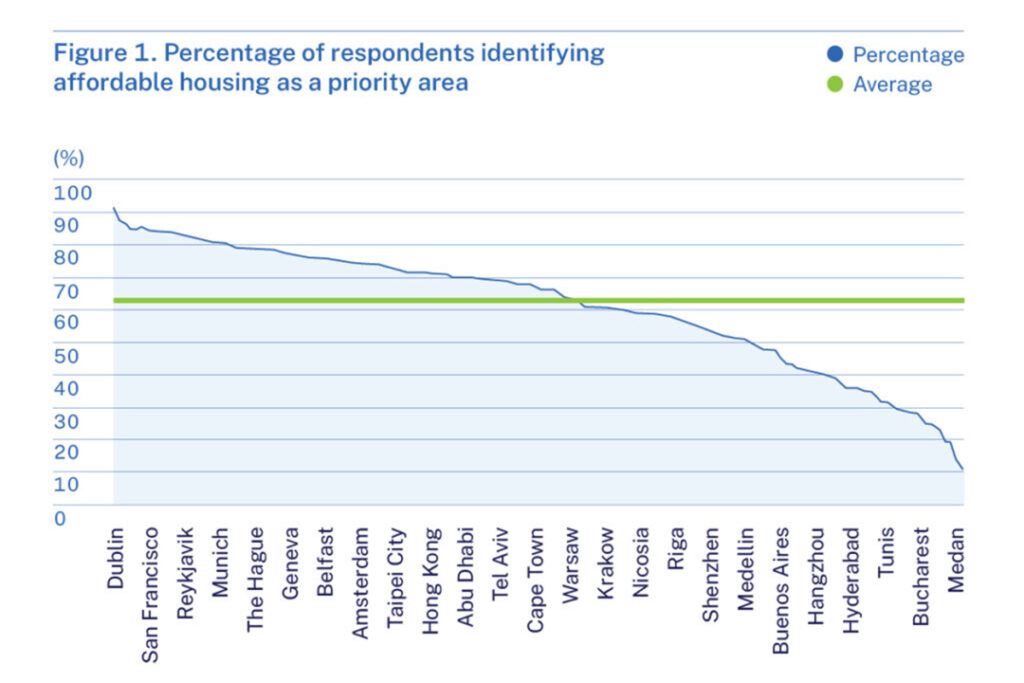Dubai and Abu Dhabi were classified in the 5 main smart cities in the IMD 2025 index. The two cities of the EAU reached the IMD Smart City (SCI) index for the first time. The index classified Zurich first in general, followed by Oslo and Geneva.
Dubai, who obtained 82.8/100 in medical services and 83.4/100 for green spaces, took fourth place, while Abu Dhabi, which obtained 84.7/100 for the provision of medical services and 83.8/100 for satisfactory green spaces, occupied the fifth place.

The index, now in its sixth year, is the tool that the World Competitiveness Center (WCC), the IMD competitiveness power, uses to evaluate the balance of several dimensions, ranging from works and homes to packaging.
The chief economist of the CMI Christos Cabolis said that the 10 main show that successful smart cities when they prioritize habitability, sustainability and governance, using technology not as an objective but as a tool to train waste and address local challenges.
The new index participants this year were Alula in Saudi Arabia, Astana (previously Nur Sultan) in Kazakhstan, Caracas in Venezuela, Kuwait City in Kuwait, Manama in Bahrein and San Juan in Puerto Rico.
“The three main cities can provide all the comforts that citizens require for a good quality of life without suffering from scale discharge as congestion caused by public transport and pollution,” said William Milner, associate director of WCC.
“They have obtained a somewhat exceptional state thanks to their size, but also to their niche economies-aceite in the case of Norway, and high quality manufacturing exports and added value in the case of Switzerland,” he said.
Milner said that smaller and independent economies could also be more protected in Trump’s trade war because they have assets that are not highly replaceable in the short term; The necessary knowledge would take a generation.
WCC said that making housing more affordable is the main priority for most survey respondents generating the IMD 2025 intelligent city index.
“Access to housing is a global problem, promoted by three main factors: population movements and immigration that reduces the supply of affordable housing, general price increases and the increase in prices of certain products,” said the director of the CMA, Arturo Bris.

The SCI 2025 report also mentioned how Trump’s president of the United States on steel (and potentially wood) is expected to increase development costs, which puts more stress in a supply of houses already contained.
The housing crisis is going through geographical divisions, which is felt in cities such as Dublin, Vancouver and Dubai, according to the report.
In these cities, between 80 and 90 percent of the 2025 LME respondents expressed a group about the affordability of housing, it was a priority area in their city, he said.
“As we move on to a new geopolitical order, cities will play a much more important role than countries,” Bris said.
“We have moved to a fragmented economy and the main urban areas will be the center of all economic activities in the coming years,” he added.








